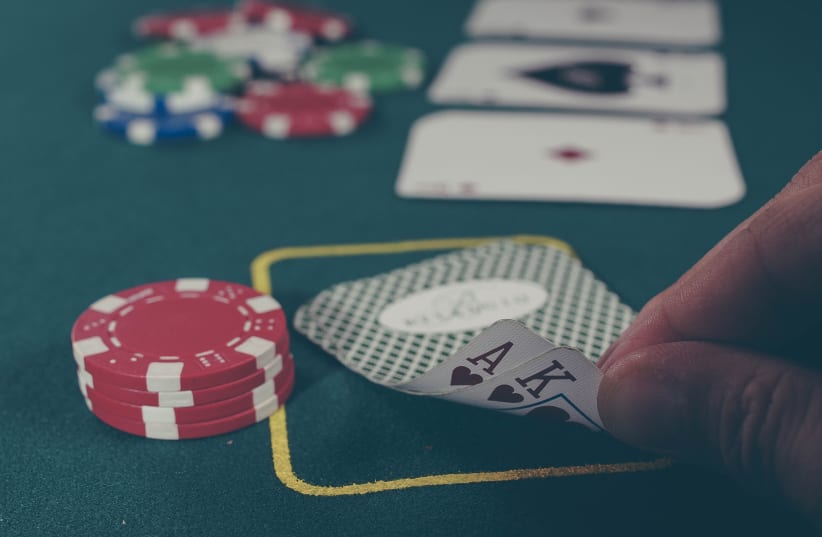For many people, the pandemic year-and-a-half has been very stressful.
Initially, in efforts to mitigate the spread of the virus and not overload healthcare resources, a quarantine began in March 2020 in Israel and many other places in the world.
Fortunately, in Israel the vaccination program followed about nine months later. Israel became an early proponent of the vaccines, which helped curtail the transmission of COVID-19 and its variants.
Although the vaccination program has been successful in Israel as well as in other countries, life has not gone back to “life as we knew it.” And, although we are constantly learning how to adapt to living in the covid world, this does not necessarily diminish its stressful effect on us.
Every stage of combating the virus has its challenges and has generated its stressors, both economical and emotional. People are persistently stressed, by social isolation, by financial insecurity.
For some, constant stress may lead them to rely on maladaptive coping mechanisms, including using alcohol and drugs, gambling and overeating. During this pandemic period, experts agree that addictions of all sorts are on the rise (Frontiers in Psychiatry 12:653674; Israel Journal of Health Policy Research 10:46).
What is addiction?
An addiction is any behavior that an individual indulges in over and over and over again, that becomes so compulsive that this person loses control – that is, of the willful ability to cut back on the behavior, and the behavior continues in spite of the fact that it causes psychological, physical, and emotional havoc to the person’s life and those closest to him/her.
In addition, people with addictions more often than not jeopardize their vocational and career goals, incur serious financial problems and may get into trouble with the law (e.g., getting caught using illegal drugs).
Another hallmark of addiction is the psychological defenses that are employed by the individual in the attempt to deny or rationalize the continuation of the behavior. One does not look honestly at the harm this behavior is inflicting on oneself or others. Sooner or later, almost all addictions do cause harm.
Guy, laid off from his job in hi-tech, was depressed. Married for three years, he started to spend all his free time in his room and discovered gambling sites. Before long, he was totally addicted, and even though he was going into serious debt, he could not stop.
Finally, his wife told Guy that he had to stop gambling and get help or she would leave him. At this point, Guy reached out to me for help.
Why is it so hard to stop an addiction?
There are many debates in the addictions field as to what cause addictions. Many factors come to mind and certainly reflect my own lengthy experience in the field.
Preexisting vulnerabilities are almost always present. An individual may have had family problems while growing up, emotional and/or biological vulnerabilities – e.g., loss of a parent, victim of child abuse or some other traumatic event, learning disabilities, severe emotional rejection. Wealth does not protect someone from the risks of becoming an addict.
One of the most established theories about the origins of addictive disorders is called the self-medication hypothesis of addiction (Edward J. Khantzian, American Journal of Psychiatry, 1985). The theory postulates that an individual uses his/her addiction to self-medicate a set of problems that overwhelm him/her. Khantzian adds that the choice of a particular drug or an addictive behavior is not by chance, but welcomed because it changes or relieves feelings, states that are especially painful or unwanted for reasons special to that person.
Addiction specialists turn to social learning theory to understand addiction and its resistance to change. After repeated experiences, the addictive behavior becomes associated with external cues such as people, places and things, experienced during compulsive addictive behavior. These associated cues become independent triggers and can elicit the craving to reactivate the addictive experience. In other words, the brain subconsciously remembers the experiences because they have become conditioned.
For example, Guy’s excitement starts even before entering his apartment, because of his anticipation of getting closer to his computer, which triggers a craving to turn it on and find his favorite gambling site. A recovering addict is very vulnerable to having a slip or relapse to the addiction because there may be many cues that can independently elicit the craving.
Moreover, addicts have selective memory and often remember the good times of using a substance or participating in addictive behavior, and fail to remember the destructive parts of their behavior.
Help for addictions
People with addictive disorders can be successfully treated, in spite of the difficulties. Initially, motivation is the key factor. Motivation is high when people are badly hurt by their addiction, and want to change. For example, Guy’s fear of his wife leaving him strongly motivates him.
Addiction counselors call this opportunity for change a “teachable moment.” It is the time when one’s denial has given way to letting in the truth and seeking help.
Before starting treatment, one must first undergo a comprehensive evaluation by an addiction specialist. During the first stage of treatment, one has to admit that one has a problem and then agree to stop the addiction.With the right amount of support, there are some people who can go through this therapy in the community, while others may need to go into a residential rehabilitation program.
The optimum and highly effective method of therapy for addiction is relapse prevention, a cognitive-behavioral therapy designed to teach addicted individuals how to self-manage the high-risk situations that are associated with their addictive behavior.
In addition, 12-step programs like those of Alcoholics Anonymous, Gamblers Anonymous or Overeaters Anonymous are highly recommended for a successful outcome.
For addicts, there is light at the end of the tunnel, even when the uncertainty surrounding covid continues.
The writer is a marital, child and adult cognitive-behavioral psychotherapist with offices in Jerusalem and Ra’anana. www.facebook.com/drmikegropper; drmikegropper@gmail.com

